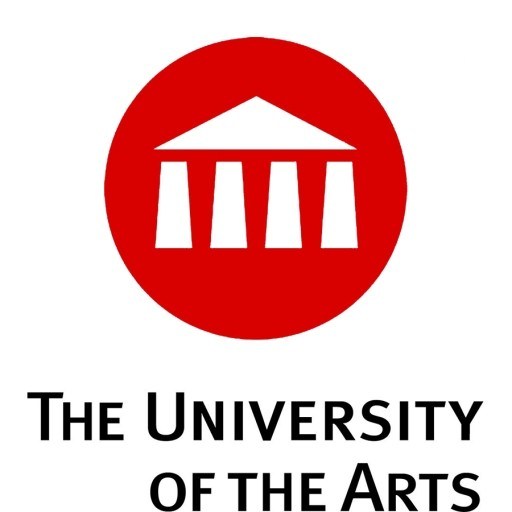Photos of university / #virginia.tech
The Bachelor of Fine Arts in Industrial Design at Virginia Polytechnic Institute and State University (Virginia Tech) is a comprehensive program dedicated to preparing students to become innovative and skilled design professionals. This program emphasizes the development of creative problem-solving abilities, technical proficiency, and an understanding of user-centered design principles. Throughout the curriculum, students engage in hands-on projects that span product design, interface design, sustainable solutions, and emerging technologies, allowing them to explore a broad range of applications within the field.
Students are encouraged to think critically about the social, environmental, and economic impacts of their design work, fostering a responsible approach to creating functional, aesthetically pleasing, and environmentally sustainable products. The program combines art and engineering principles, promoting an interdisciplinary mindset that is essential in today’s rapidly evolving design landscape. Students gain proficiency in industry-standard tools, including CAD software, 3D modeling, and prototyping techniques, preparing them for careers in design studios, manufacturing companies, or entrepreneurial ventures.
The curriculum is supported by experienced faculty members who are active practitioners and researchers in the field of industrial design. Students have access to state-of-the-art laboratories, fabrication facilities, and collaborative spaces that facilitate innovative exploration. The program also offers experiential learning opportunities through internships, design competitions, and partnerships with industry leaders, ensuring students graduate with both a solid educational foundation and practical experience.
Virginia Tech’s emphasis on a collaborative and inclusive learning environment fosters teamwork, effective communication, and project management skills, which are critical in professional settings. Graduates of the program are equipped to contribute creative solutions to real-world challenges, improve everyday products, and influence the future of design. Whether aspiring to work in consumer product design, ergonomic research, or sustainable development, students in this program are prepared to lead and innovate within the industrial design industry.
- 2015-2016: INDUSTRIAL DESIGN LABORATORY II
- 2044: HUMAN FACTORS
- 2065-2066: DESIGN VISUALIZATION
- 2114: HISTORY AND THEORY OF INDUSTRIAL DESIGN
- 2124: HISTORY AND THEORY OF INDUSTRIAL DESIGN-DESIGNERS
- 2214: IDS STUDIO FOR MINORS
- 2304: COMPUTER AIDED INDUSTRIAL DESIGN
- 2974: INDEPENDENT STUDY
- 2984: SPECIAL STUDY
- 3015-3016: INDUSTRIAL DESIGN LABORATORY III
- 3124: MATERIALS AND PROCESSES
- 3204: TOPICS IN PROFESSIONAL DEVELOPMENT
- 3214: IDS SUMMER STUDIO
- 3224: TOPICS IN DESIGN COMPETENCIES
- 3234: TOPICS IN DESIGN THEORY
- 3514: DESIGN RESEARCH
- 4015-4016: INDUSTRIAL DESIGN LABORATORY IV
- 4044: PROFESSIONAL PRACTICE AND ENTREPRENEURSHIP
- 4094 (ENGE 4094) (MGT 4094): MANAGING TECH COMMERCIALIZATN
- 4974: INDEPENDENT STUDY
- 4984: SPECIAL STUDY
- Application Fee: A non-refundable fee of $70 for all international students applying for admission must be submitted. The check must be written on a U.S. bank, a foreign bank with a U.S. correspondent, or a U.S. money order. Your application will not be processed without this fee. Students who apply online are required to pay the application fee electronically with either a debit or credit card (MasterCard or VISA), or an electronic check.
- SAT Reasoning Test or ACT Scores (Optional for international applicants): Virginia Tech’s CEEB code is 5859; the ACT code is 4420.
- InitialView Interview (Optional for international applicants): You may learn more about InitialView at www.initialview.com. Please arrange to have your interview completed as early as possible. The deadline for completing the interview is February 15, 2017. For additional details, see the requirements page.
- TOEFL/IELTS/PTE: Applicants whose native language is not English must take the Test of English as a Foreign Language (TOEFL), the International English Language Testing System (IELTS), or the Pearson Test for English (PTE). Scores should be received on or before March 1. To have your TOEFL score automatically sent to Virginia Tech, please specify Virginia Tech’s CEEB code (5859) on the test form.
- Educational Documents: All documents in a language other than English must be accompanied by certified English translations. Notarized translations alone will not be accepted. Translations supplement, but do not replace original documents. Remember to send both.
- Diplomas/Certificates: Students who have completed secondary school or high school must submit copies of their diplomas or school leaving certificates. Report of scores on school leaving examinations must also be submitted.
- Transcript/Statement of Marks: This contains the record of courses studied, marks (grades) awarded, length of class periods, and grading scale with minimum passing mark. These must be submitted for upper secondary or high school years and must be complete for applicants who have graduated from school. For those applicants who are still enrolled in school, the transcript, or statement of marks, must show the most current term of grades to date. The transcript must be an original copy, certified by the sending institution.
The Industrial Design program at Virginia Tech offers several financing options to assist students in managing their educational expenses. Undergraduate students enrolled in the program can typically access a combination of federal and state financial aid, including grants, scholarships, work-study opportunities, and federal student loans. Federal grants such as the Pell Grant may be available to eligible students based on financial need, providing a significant source of non-repayable funding. Virginia Tech also offers numerous scholarships specifically targeted toward design students, which are awarded based on merit, portfolio quality, and other criteria.
In addition, students may qualify for institutional scholarships provided by Virginia Tech’s Office of Undergraduate Admissions or the College of Architecture and Urban Studies. Work-study programs allow students to gain practical experience while earning money to support their studies, and are awarded based on FAFSA application results and eligibility. For international students, financing options may be more limited and often involve private loans, scholarships, or personal funding, as federal aid is generally not available.
Graduate students pursuing advanced degrees in Industrial Design can access teaching and research assistantships, which provide stipends and tuition waivers in exchange for teaching or research responsibilities. Moreover, some students may be eligible for external scholarships through professional organizations, industry partnerships, or design associations. It is advisable for students to explore federal loan options, including undergraduate and graduate Stafford loans, as well as private loans if necessary, within their financial planning.
Virginia Tech also offers financial literacy resources to help students plan their budgets and understand repayment obligations post-graduation. The university's financial aid office provides detailed guidance and personalized assistance to help students identify the most suitable funding options for their educational journey in Industrial Design. Overall, financing a degree in Industrial Design at Virginia Tech involves a combination of institutional aid, federal assistance, external scholarships, and personal funding, with various avenues available to reduce the financial burden for students committed to pursuing their design education.
The Bachelor of Science in Industrial Design at Virginia Tech is a comprehensive program that prepares students to become innovative and user-centered designers. The curriculum emphasizes a strong foundation in design principles, ergonomics, materials, manufacturing processes, and sustainability. Students engage in hands-on projects that foster creativity, problem-solving skills, and critical thinking. The program encourages collaboration across disciplines, integrating knowledge from engineering, psychology, and business to develop well-rounded designers capable of addressing complex societal challenges. Facilities include state-of-the-art laboratories, workshops, and digital design studios, providing students with the resources necessary to develop their ideas from conception to production. The faculty comprises experienced professionals and researchers dedicated to mentorship and advancing the field of industrial design. Internship and cooperative education opportunities are integrated into the curriculum, enabling students to gain real-world experience and establish industry connections. Virginia Tech’s location near technology hubs and manufacturing centers facilitates engagement with local industries for project collaboration and employment prospects. Graduates of the program are equipped to work in various sectors, including consumer products, transportation, healthcare, and environment design. They undertake roles such as product designers, usability specialists, and design consultants, contributing to innovative solutions that improve quality of life. The program emphasizes ethical design practices and considers social and environmental impacts, aligning with Virginia Tech’s commitment to sustainable development. Additionally, students have opportunities to participate in design competitions, exhibitions, and study abroad programs to broaden their perspectives and enhance their portfolios. Upon completion, graduates are prepared for advanced study or entry into the professional workforce, equipped with the skills necessary to shape the future of industrial design and contribute meaningfully to society.









